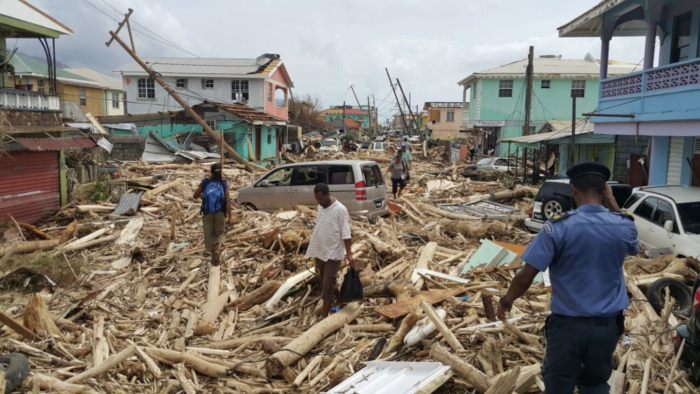By: Sumati Rajput, World Bank
It comes as no surprise to anyone that the Caribbean region is frequently battered by storms and hurricanes, and that the costs of these events result in higher public debt burdens. Since 1950, 511 disasters worldwide have hit small states—that is, developing economies with populations of less than 1.5 million. Of these, 324 were in the Caribbean, home to a predominant share of small states, killing 250,000 people and affecting more than 24 million through injury and loss of homes and livelihoods.
The economic
impacts of these remain devastating of course. On average, the annual
cost of disasters for small states is nearly 2 percent of GDP—more than four
times that for larger countries[1].
For the Caribbean, this is particularly substantial, with damages well exceeding
the size of the economies. For instance, Hurricane Maria is estimated to have cost
Dominica 225 percent of its GDP, while the hurricane damage for Grenada in 2004
was 200 percent of GDP, leaving huge reconstruction needs that takes years to
fulfill.[2]

Over the past few years, the Caribbean countries with their Latin America neighbors have pioneered the development of many creative and innovative financial solutions, which have been replicated globally. For example, the Caribbean Catastrophe Risk Insurance Facility (CCRIF), set up 2007 was the first ever multi-country risk pool in the world. The success of this has traveled far and wide with Africa Risk Capacity (ARC) owned and implemented by African countries, and a similar mechanism – the Southeast Asia Disaster Risk Insurance Facility (SEADRIF) emerging to cover Cambodia, Lao, and other countries in the region.
Central to putting in place these instruments is access to and use of accurate, reliable, and understandable information. To make sound financial decisions, governments need the right information. Evidence demonstrates that this is an important step universally – across all regions.
At the upcoming Understanding Risk Caribbean, the World Bank and the Global Facility for Disaster Reduction and Recovery are convening delegates from Governments of small island economies, particularly Ministries of Finance who will come together to discuss the important role information plays in financial planning to address the macro-fiscal shocks that disasters repeatedly impose on them. This would include a reflection on how Caribbean countries are:
- Collecting the right type of data. This includes a range of different information sets that countries gather, historical loss data sets, macroeconomic data, as well as, other fiscal data that captures losses that traditional disaster loss datasets miss. Many countries are now using innovative tools and technologies like drones and satellites to capture physical information to build stronger models for better financial planning.
- Curating the information required for assessing costs and benefits. This typically requires a range of analytical tools and is crucial to analyzing costs and benefits associated with different instruments that the country could use to cover the costs associated with events they experience more routinely, while others that while less frequent have a much larger impact on their economies.
- Communicating information to influence decision-making. While financial and actuarial tools can curate information, communicating evidence-driven findings in a way that reaches policy makers and wider audience is fundamental to building out smart solutions, which are also the right solutions in countries, maximizing value of money countries either set aside or plan to leverage when there is a disaster.

Come join the discussion in Barbados on May 28 at the Understanding Risk Caribbean, to continue the conversation with Ministries of Finance, Development Partners, and the Private Sector on different perspectives for protecting small economies from the macro-economic shocks of disasters.
Works Cited
[1] https://www.imf.org/external/np/pp/eng/2016/110416.pdf
[2] Bracing the Storm
Sessions
“Financial Planning for a Rainy Day: Using Risk Information to Build Smart Solutions “| 10:15-11:30 Goddard Room
